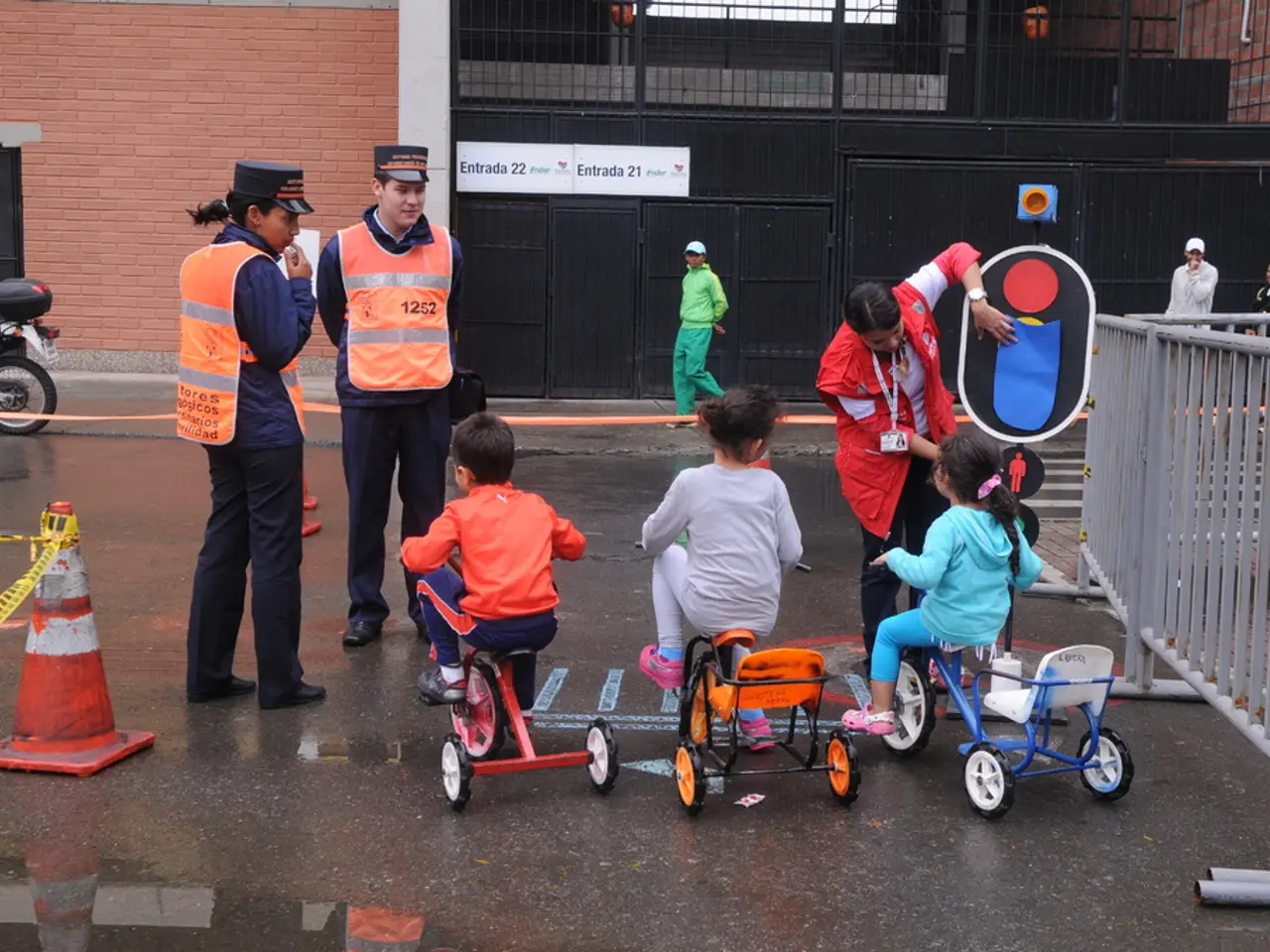Parents urged to prioritize traffic safety while cycling with children by the Traffic Safety Council - Traffic Authorities Urge Parents to Adopts Cycling Safety Measures
In the bustling city of Berlin, the Senate Administration for Education recognises the importance of traffic schools in equipping children with essential cycling skills and traffic safety understanding. However, they acknowledge that these schools can be improved to better accommodate the scheduling needs of parents and children.
Josef Weiß, a pedagogue from the Media Service of the Traffic Safety Council, has identified potential areas for development, particularly in the opening hours of the youth traffic schools in Berlin. He emphasises the significance of automating the movement sequences through practice for children and recommends regular cycling practice for children, even outside the school setting.
The challenges faced by children when cycling in a city like Berlin are substantial, given the constant mental stimulation from pedestrians, cars, cyclists, and other road users. Common problems among children during cycling education include issues with starting, lane keeping, braking, and one-handed riding.
To ensure children’s safe cycling practices in Berlin’s urban environment, the Traffic Safety Council offers recommendations that focus on a combination of education, proper equipment, and infrastructure awareness. Parents are encouraged to ensure their children wear helmets, teach them to obey traffic rules consistently, provide safety training, promote mutual respect among all road users, and advocate for safer urban infrastructure.
The summer holidays present a valuable opportunity for parents to practice with their children and feed their motor memory regularly. Despite Berlin having 25 youth traffic schools, the limited opening hours, often only in the afternoon and on weekends, make it difficult for parents to let their children practice additionally.
The Traffic Safety Council urges parents in Berlin to take advantage of the summer holidays and practice cycling with their children. Cycling education usually takes place in the third or fourth grade, but many children may not be sufficiently motorically prepared. Simultaneous tasks like riding, looking around, giving hand signals, and anticipating traffic situations can be particularly challenging for children, making regular practice and training crucial.
The Berlin Senate Administration for Education highlights cycling as an important form of active and independent mobility, strengthening traffic safety, and enabling children to move independently in the city. They stress that corresponding motor skills and a good understanding of traffic rules are essential for children's cycling safety.
Josef Weiß notes that the bicycle is not always a daily means of transportation for children in some families, and the pandemic has worsened the lack of exercise. He encourages parents to go on outings, cycle together with their children, and help them develop routines.
In conclusion, parents in Berlin should focus on helmet use, traffic rule education, respect for all road users, practical safety training, and awareness of bicycle-friendly infrastructure to ensure their children's safe cycling practices in the city. Regular practice and training are crucial for children's cycling safety, and many youth traffic schools in Berlin are open during the summer holidays for cycling education.
- To complement the traffic schools' efforts in educating children about cycling and traffic safety, the Senate Administration for Education might consider revising the community policy to extend the opening hours of the youth traffic schools, allowing for more flexible scheduling options for parents and children.
- With the growing emphasis on health-and-wellness and fitness-and-exercise, the Traffic Safety Council could explore integrating science-based methods into the cycling education curriculum to make it more engaging and effective for children.
- As part of a comprehensive approach to children's health and lifestyle, the Senate Administration for Education could consider collaborating with home-and-garden organizations to create safe and accessible cycling routes within residential areas, encouraging children to practice cycling regularly in a familiar and comfortable environment.




